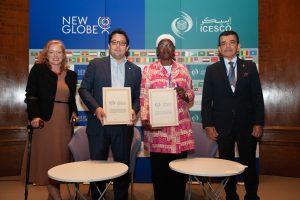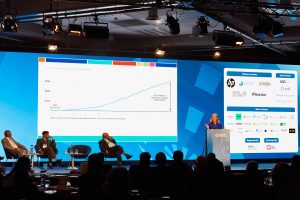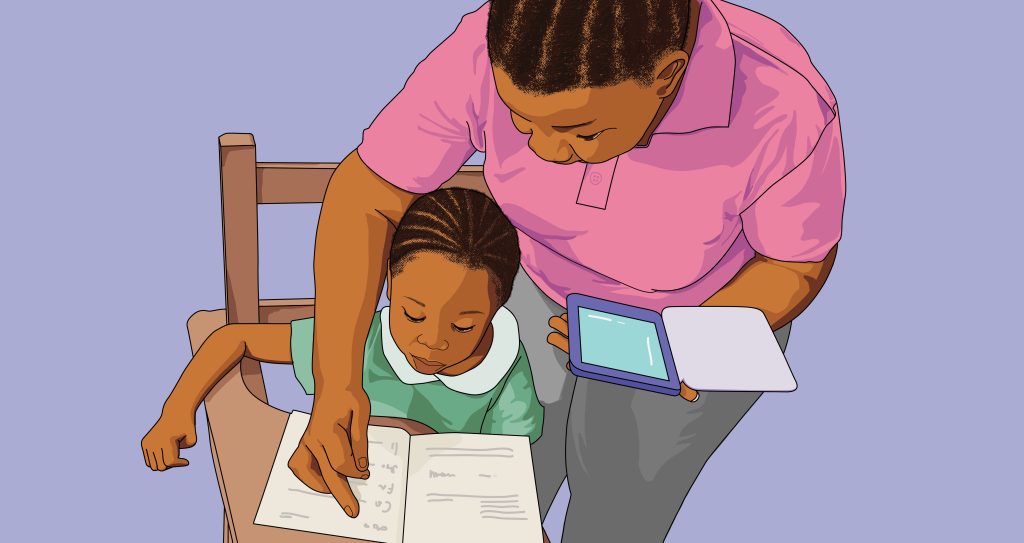EdoBEST 2.0 reform: A new chapter for Edo State Universal Basic Education
The expansion of the EdoBest Government-led program is now reaching junior secondary schools and progressive schools.
The global disruption of the COVID-19 pandemic worsened learning poverty and exacerbated inequalities around the world. According to The World Bank, lockdown measures impacted more than 1.6 billion pupils. Yet, while some states struggled to provide high-quality education, others were able to maintain their lessons remotely with the support of effective and appropriate technology platforms and scientifically-based pedagogy.
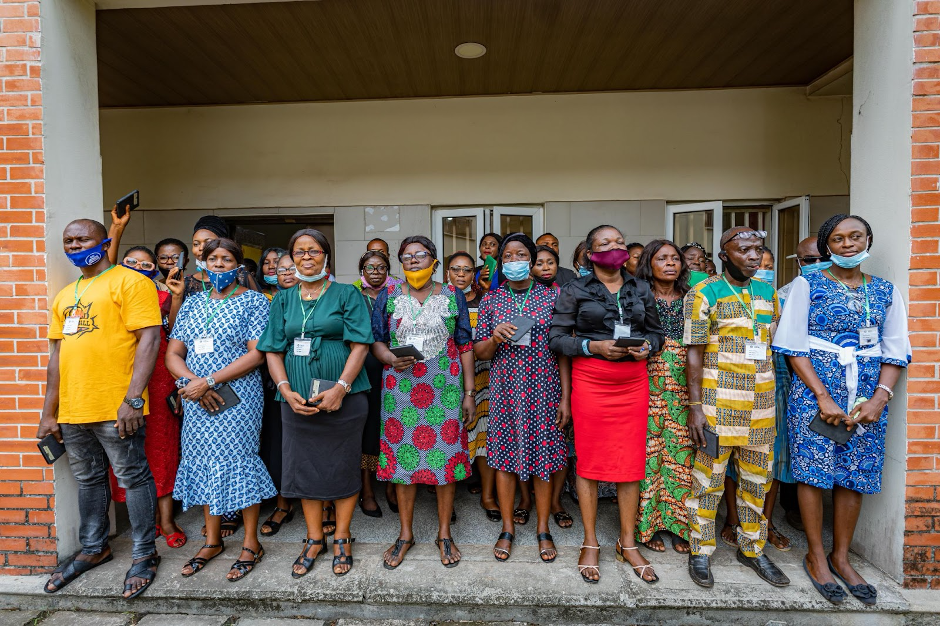
In April 2018, Governor Godwin Obaseki initiated the EdoBEST reform with an ambitious goal – the complete transformation of basic education in Edo State. The NewGlobe-supported program equipped the Edo State Universal Basic Education Board (SUBEB) with the means to ensure that every teacher was able to deliver superb lessons, designed to make sure children gained the best possible learning outcomes. It did not take long to see the results. After just a single term, the EdoBEST Effect study recorded that pupils were learning what would previously have taken a whole year. EdoBEST pupils already had higher scores than their peers in other public schools, outperforming them by 2% in mathematics and 5% in literacy.
By the time the program reached its third birthday, the learning gains for students were even clearer, and larger, as Governor Obaseki explained:
We used standard tests to examine fluency, literacy and numerical skills at every age. The outcomes, which are independently measured, showed that the children in EdoBEST now are learning at about 70% of the rate of their counterparts in Europe and Asia. That same review of the average situation in Nigerian schools measured them at about 30 percent. So while the average Nigerian is 30 percent, Edo State is at 70%.”
When school closures undermined children’s education across the Globe, in Edo State the education system showed resilience. Praised by The World Bank, the Edo-BEST@Home platform allowed pupils to pursue their lessons remotely, while reducing their chance of suffering from learning losses during the pandemic-related school closures. More recently, The World Bank has further applauded EdoBEST for leveraging its initial program and adapting to pupils’ and teachers’ new reality. They not only highlighted the benefit of e-online classes, but the bespoke training previously given to every teacher under the program. Because of their specific coaching, school staff experienced more ease in managing and navigating through the different challenges of online and remote learning.
By managing and strategically updating the platform content, pupils’ learning continued to grow, despite school disruption. The learning platform included Virtual Classrooms, Learning Guides, Activity Packets, Digital Storybooks and more. Following the impressive learning gain results of the last three years, including during the global health crisis, the Edo State Government launched its expanded education reform program earlier this year: EdoBEST 2.0.
“Edo kids are now learning better. We want to extend this education transformation throughout the educational chain, basic education system, middle school, technical colleges and tertiary institutions. The tertiary institutions are going to focus on production of certain kinds of manpower, particularly in agriculture, healthcare and technology.”- Obaseki Godwin, Edo State Governor.
The proven impact of high-quality education transformation at the elementary level has driven the program to expand its activities across 232 junior secondary schools and 148 progressive schools (hard-to-reach and rural schools). Edo SUBEB’s holistic approach to addressing learning poverty has made Edo State one of the pioneers in education technology transformation, increasing opportunities for all the children learning more through it.
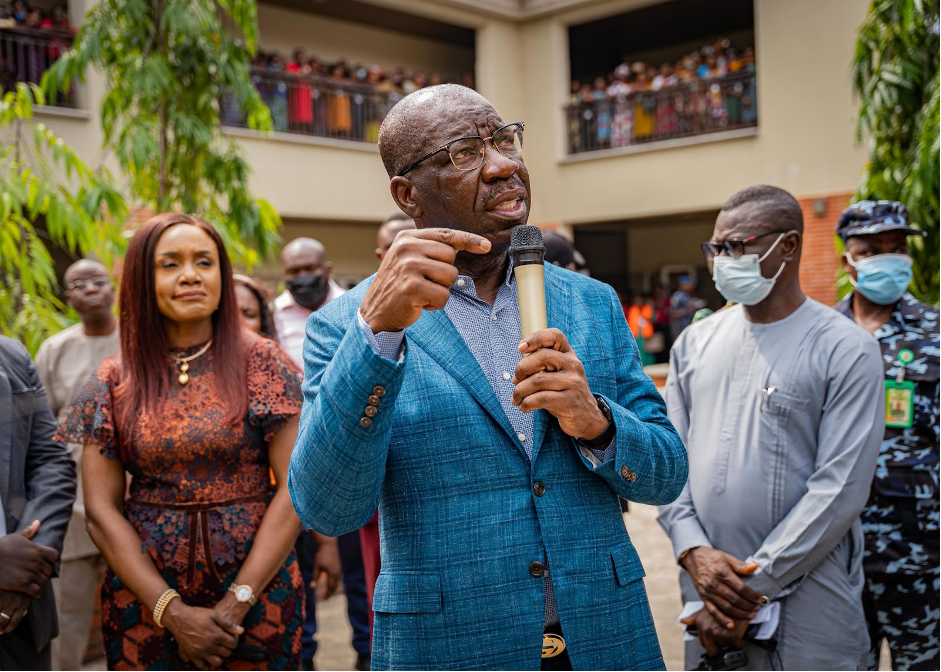
Implementing this expanded reform across Edo State has led an additional 2,436 teachers and principals and 166 headteachers and education managers to be recruited through the EDOSTAR program, completing their training in January and February 2022 in Benin City.
Training sessions provide school staff with the pedagogical and technical knowledge to transform their lessons. This includes educational technology tutorials with tablets and smartphones, classroom management strategies and student motivation techniques. They also equip teachers with expertise regarding child protection and safeguarding issues to tackle any gender-based violence in junior secondary schools.
“The governor has maintained that no society can progress without education. He is committed to ensuring that Edo children get quality education, no matter where they are located.”- Mrs. Ozavize E. Salami, Executive Chairman SUBEB.
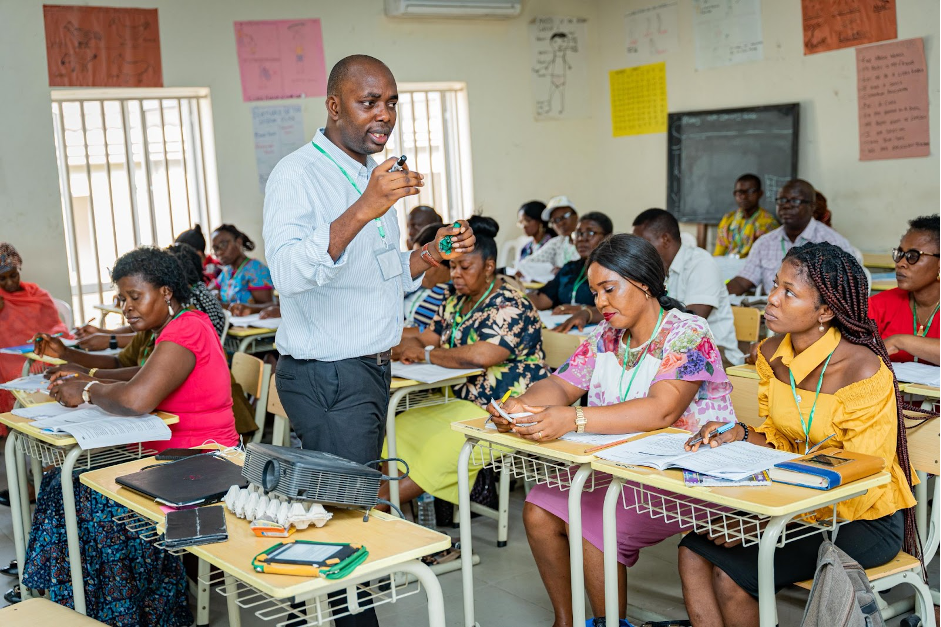
To complement the work of EdoBEST 2.0, Mrs Ozavize E. Salami, Executive Chairman of Edo SUBEB, announced the launch of a five-year infrastructure renewal plan, with the aim of uplifting school establishments and preventing further deterioration of buildings.
“Maintenance is part of the plan, so that schools would not deteriorate at a very high speed as they did before.” – Mrs. Ozavize E. Salami, Executive Chairman SUBEB.
The overall goal of EdoBEST 2.0 is to change the face of teaching and learning across even more of Edo State, delivering greatly improved learning outcomes and encouraging a new generation of young people to stay in schools despite the current global challenges.
“Edo kids are now learning better. We want to extend this education transformation throughout the educational chain, basic education system, middle school, technical colleges and tertiary institutions. The tertiary institutions are going to focus on production of certain kinds of manpower, particularly in agriculture, healthcare and technology.” -Godwin Obaseki, Edo State Governor
EdoBEST has proven itself as an education transformation program at the pre-school and primary levels. It’s success led the programme to become the only sub-national program in Africa to become part of the World Bank’s Accelerator scheme – which offers support for projects proven to deliver improved learning outcomes. In August 2020 Governor Obaseki announced that the World Bank had approved funding of $75m to support Edo State in the expansion of EdoBEST. The World Bank’s support has been crucial to EdoBEST 2.0.
This time, the education reforms under EdoBEST 2.0 support the Government’s goal of increasing access to quality education and boosting outcomes at the secondary level and, eventually, at the tertiary level. Ultimately, the Edo State Government’s effort and engagement in the field of education aim ensure the development of human capital by leaving no children behind.
